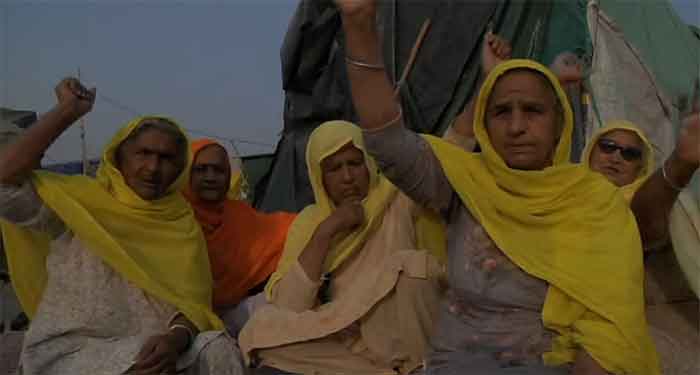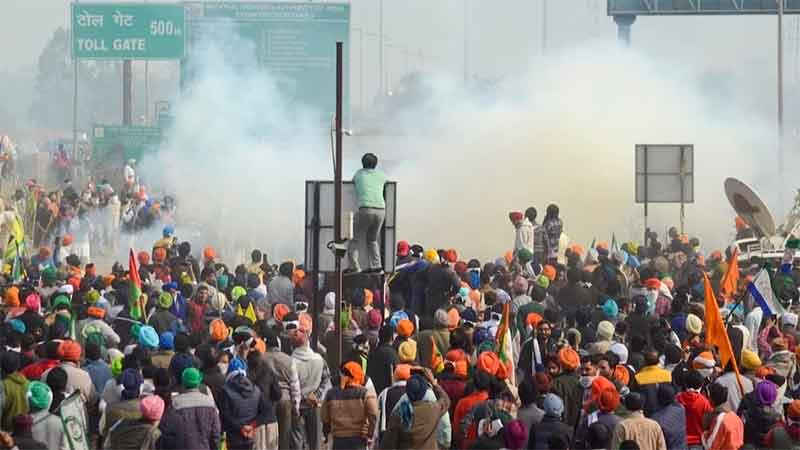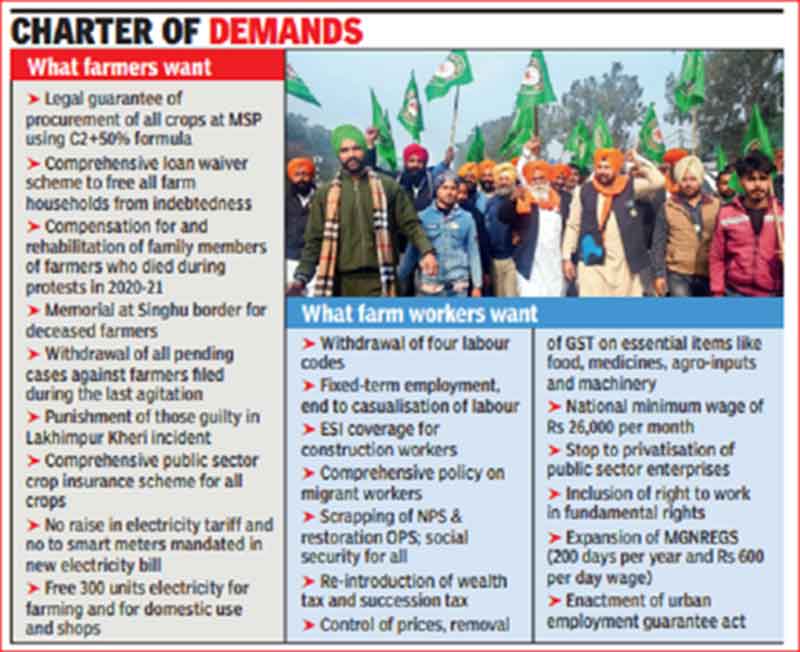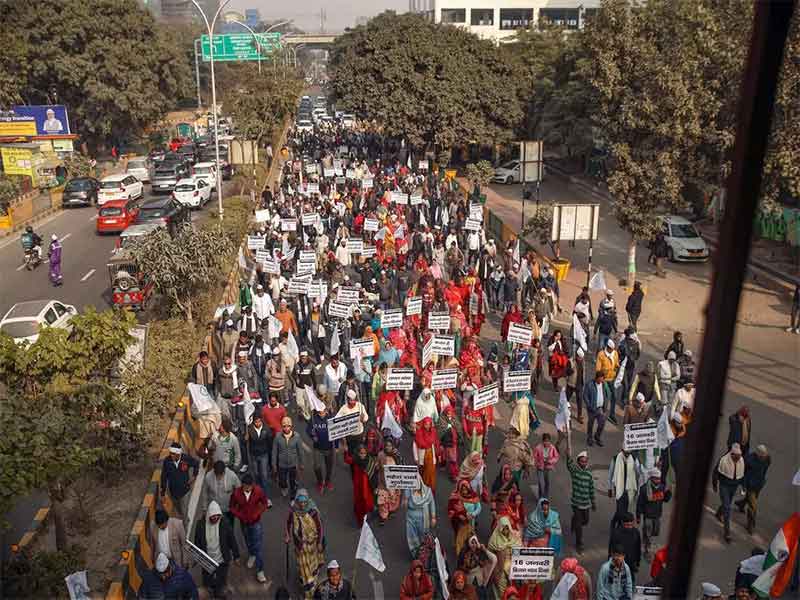
The government has decided to repeal all the three agricultural laws. The government will also have to clarify its role regarding MSP. This is a great achievement of an unprecedented peaceful movement.
On this decision of the government, Rakesh Tikait has said that the agitation will not be withdrawn immediately, let’s wait for the day when the agricultural laws will be repealed in the Parliament. Apart from MSP, the government should also discuss other issues of farmers.
Congratulations to all the farmers in the country for the unprecedented peaceful struggle. There has never been such a long and peaceful conflict in the world. Even during Gandhiji’s time, the period of many civil disobedience movements was not so long. It is not easy to suppress non-violent and peaceful movement.
Farmers have been struggling for years to get a fair price for their produce. Instead of listening to them and resolving the issue, they were branded as Khalistanis, terrorists, even traitors and the government / BJP / RSS did not utter a word against the propaganda. But the ego has to bow to authority.
The government also tried hard to suppress the farmers’ movement. The Speaker declared that it was approved by a voice vote, ignoring the demand for division of votes by blocking the parliamentary session in the Rajya Sabha. It was a parliamentary monopoly, not a democracy.
No country in the world has turned its capital into a fortress, which is rarely found in a democracy. But this has happened in our country. One is in the capital of India, while the other is on the border of Singhu, Tikri, Ghazipur etc. No country in the world has turned its capital into a fortress, which is rarely found in a democracy. But this has happened in our country.
The farmers ‘movement was initially described as weak and some brokers’ movement. He was also called a Khalistan supporter due to the huge participation of Sikhs in Punjab. Farmers were barricaded on the road to prevent them from reaching Delhi.
In the history of BJP and RSS, basic issues like food, employment, education, health have no place, but movements like Gau Raksha, Ram Janmabhoomi are not related to these issues but play with faith. But gathering faith is easy, but working on real issues is difficult. Because they do not solve these issues in the air.
The Kisan Andolan is one such movement which was ignored by everyone from the Prime Minister to the BJP to the RSS. This is the first time in seventy years that there has been such indifference to public issues and so much sympathy for corporate. This is not a masterstroke of the government but an election compulsion.
The whole country is watching how the farmers, farmers, laborers, bank employees, railway workers and others across the country are watching how the farmers of Punjab, Haryana and western Uttar Pradesh have brought the elected government to its knees before the three agricultural laws. What will happen if farmers, laborers, students and youth across the country take to the streets against the indiscriminate privatization of established institutions, the sale of government property at exorbitant prices, high inflation, unemployment, expensive education and health care and corporate patriotism? The realization of this can be seen in this movement
On the one hand, the Supreme Court has banned the implementation of agricultural laws, but on the other hand, it has made it clear that farmers have the right to protest without falling prey to a series of petitions by devotees to clear closed roads. Prime Minister Narendra Modi has announced the repeal of the Agriculture Act. The central government also had to withdraw the Land Acquisition Act. The central government has finally had to bow to the ongoing agitation against the new agricultural laws by the central government.
Under the leadership of Rakesh Tikait, the farmers were agitating for the repeal of these three laws. The farmers had made it clear that nothing less than repealing these laws was acceptable. The central government discussed the amendment to address the concerns of farmers. He also promised to postpone the law for two years but the farmers did not agree to end the agitation. This was also mentioned by Prime Minister Modi in his speech.
This is not the first time the government led by Prime Minister Narendra Modi has taken a step back. Earlier, the PM Modi-led government had to withdraw the ordinance. When the central government had to withdraw the land acquisition ordinance, it happened immediately after Narendra Modi was sworn in as the Prime Minister.
Just a few months after Narendra Modi came to power, the central government issued a new land acquisition ordinance. With this, the provision of consent of farmers was canceled to facilitate land acquisition. Land acquisition required the consent of 80 per cent farmers. The new law repealed the consent of farmers.
This was opposed by the farmers. Political parties also strongly opposed it, so the government issued the ordinance four times, but the bill could not be passed in Parliament. Finally, the central government had to back down and PM Modi’s government announced on August 31, 2015 that it would withdraw the law.
The Prime Minister said that a resolution in this regard would be passed in the winter session of Parliament starting November 29 and all the three laws would be withdrawn. He said that all the three laws were in the interest of the farmers and they were in favor of the majority of the farmers.
Every law of the welfare state should be made in the public interest. Which must meet the basic needs of the people such as living and subsistence, bread, education, health. All these things are also mentioned in the guidelines of the constitution. If the government does not have a sense of public welfare, then it is not democracy, it is something else.
Vikas Parasram Meshram is a political commentator














































